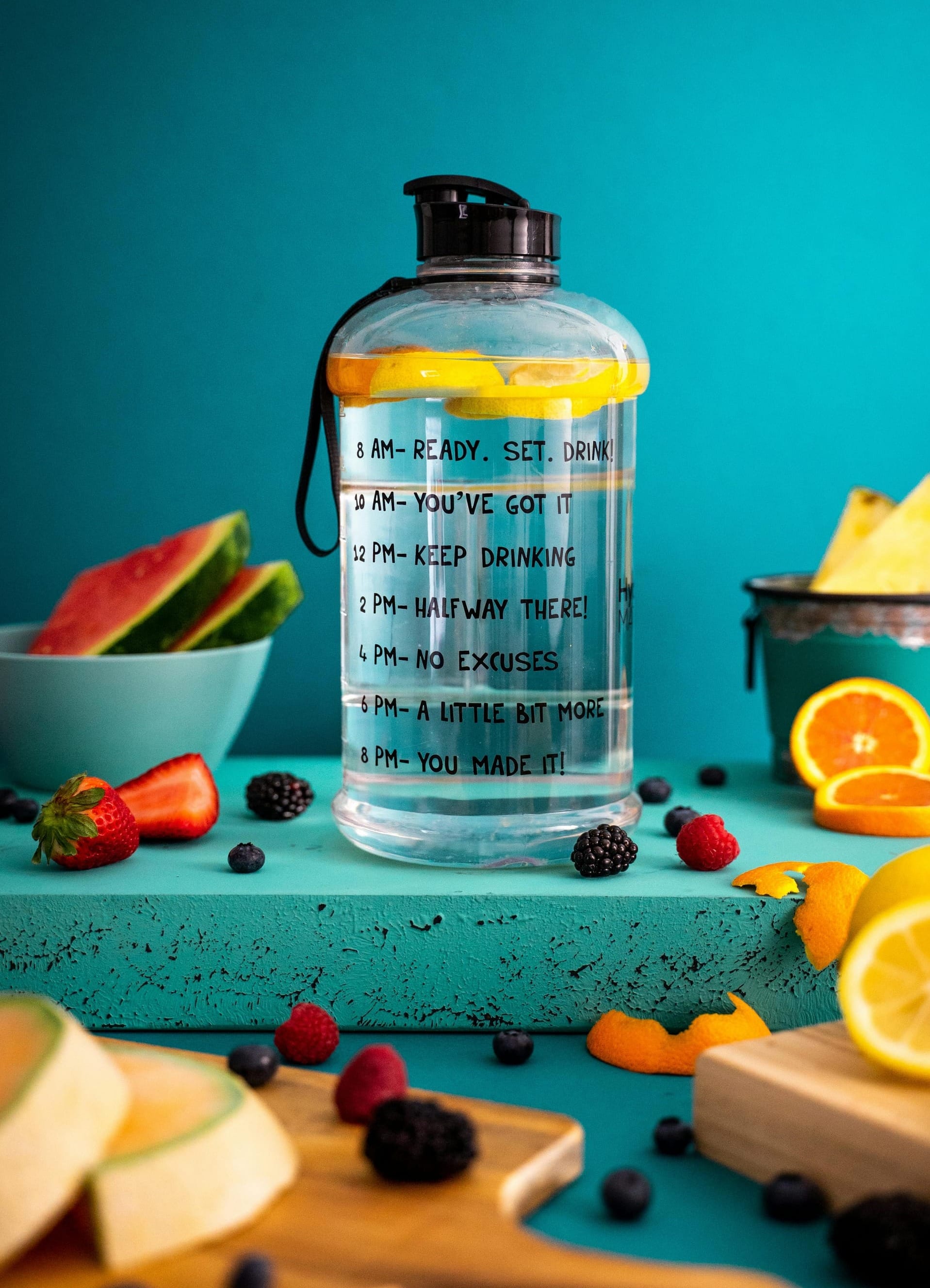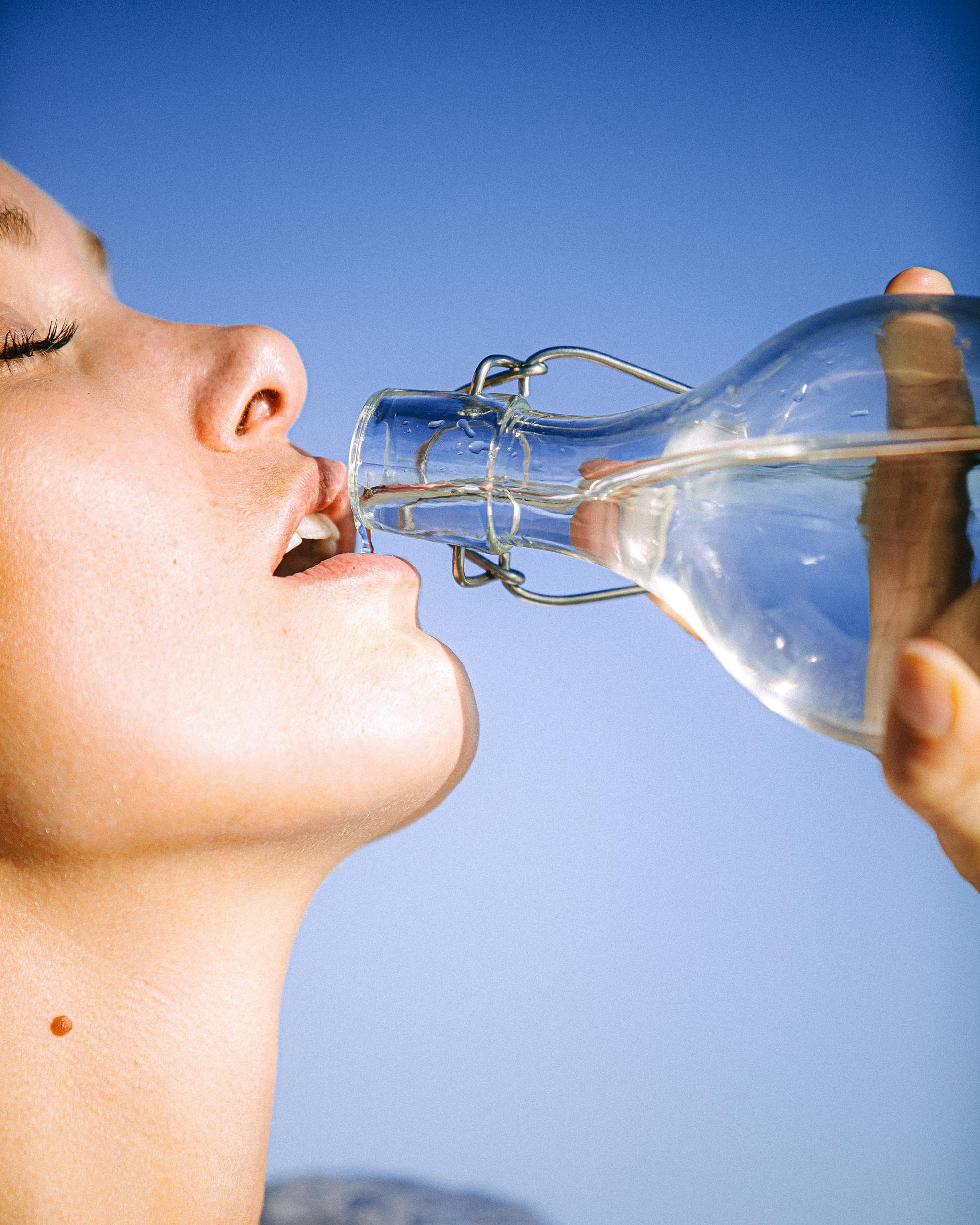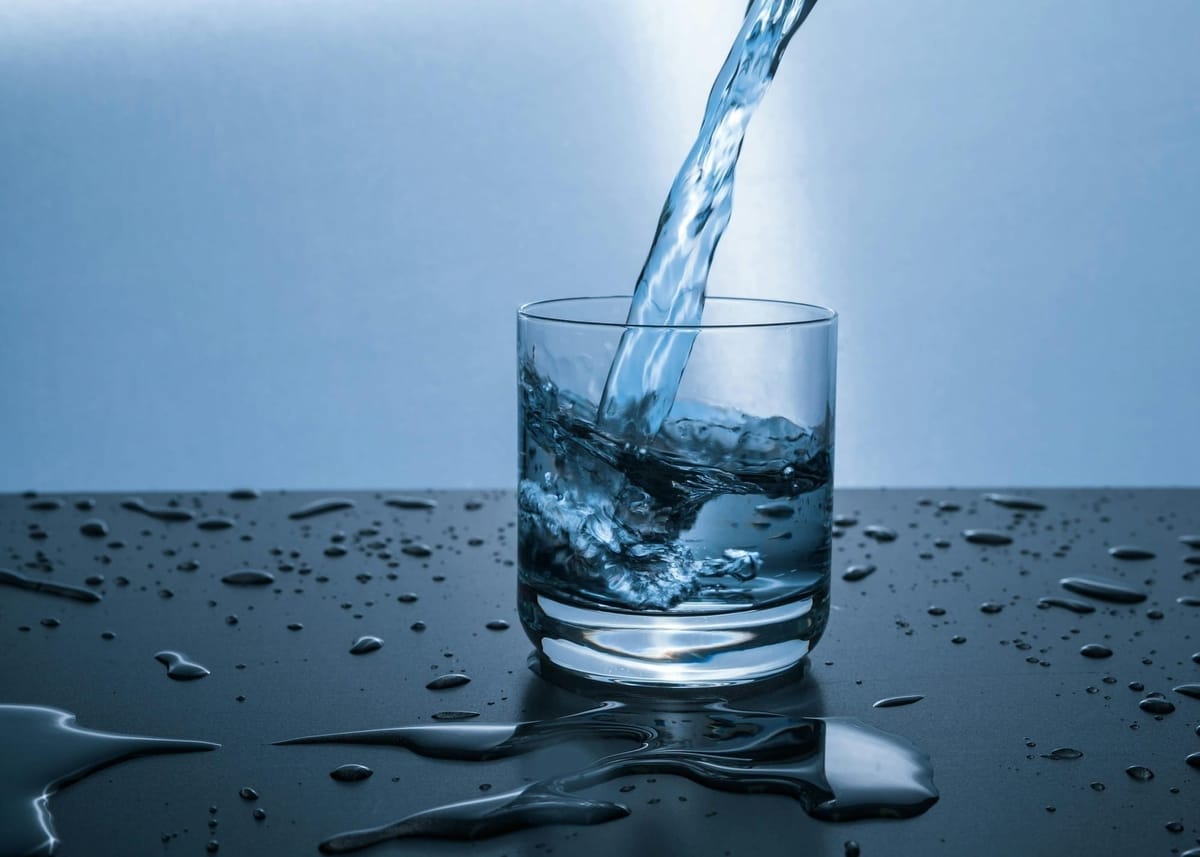Disclaimer, Privacy Policy, Terms of Service
Water is the essence of life. It is a critical component of every cell in our bodies, and without it, we simply cannot survive. This article will delve into the myriad ways that water contributes to our health and well-being, emphasizing the importance of staying hydrated. We'll explore the benefits of hydration, how much water you should drink daily, and the role water plays in our bodily functions.
The Lifeline of Our Bodies: Water's Role in Health
Water is not just a thirst quencher; it's the lifeline of our bodies. Every system in our body relies on water to function properly. From regulating body temperature to flushing out toxins, water is a vital nutrient that supports our health in countless ways. It acts as a lubricant for our joints, assists in digestion, and helps deliver oxygen throughout the body. Without adequate water intake, our bodies cannot perform at their best, leading to a decline in physical and cognitive functions.
The human body is composed of approximately 60% water, which underscores its importance. Dehydration can happen quickly and can have serious health consequences. Even mild dehydration can impair mood, memory, and motor coordination. Therefore, it's crucial to understand that water is not just a part of a healthy diet; it is a cornerstone of a healthy life.
Hydration's Impact on Physical Performance
When it comes to physical activity, hydration is key. Water helps to maintain the balance of electrolytes in our bodies, which are essential for muscle function. During exercise, we lose water and electrolytes through sweat, and if these are not replenished, it can lead to decreased performance, fatigue, and even heat-related illnesses such as heat stroke. Athletes and those who engage in regular physical activity need to be particularly vigilant about their water intake to maintain peak performance levels.
Studies have shown that even a 2% reduction in body weight due to fluid loss can significantly affect physical abilities. This is why many professional athletes pay close attention to their hydration status before, during, and after exercise. By staying hydrated, you can ensure that your body has the necessary resources to perform at its best, whether you're running a marathon or simply going for a brisk walk.
The Cognitive Benefits of Staying Hydrated
Hydration isn't just about physical health; it's also about mental clarity and function. The brain is made up of about 73% water, and maintaining hydration is essential for cognitive processes. Dehydration can lead to difficulties in focusing, memory problems, and brain fatigue. Keeping hydrated helps with concentration and can even improve your mood.
Research has indicated that even mild dehydration can impair cognitive performance, particularly in tasks that require attention, executive function, and motor coordination. By ensuring you're well-hydrated, you're not only taking care of your body but also nurturing your mind, allowing you to think more clearly and stay alert throughout the day.
How Much Water Do You Really Need?
The question of how much water one should drink daily is a common one, and the answer can vary depending on several factors. The widely accepted "8x8 rule" – drink eight 8-ounce glasses of water a day – is easy to remember but doesn't account for individual differences such as weight, climate, and activity level. A more personalized approach is to drink between half an ounce and an ounce of water for each pound you weigh, every day.
For example, if you weigh 150 pounds, that would be 75 to 150 ounces of water a day. However, this is just a guideline, and your specific needs may vary. It's important to listen to your body and drink when you're thirsty, and also to consider your environment and activity level when determining your water intake.

Water-Rich Foods and Their Benefits
Drinking water is not the only way to stay hydrated. Many foods, particularly fruits and vegetables, have high water content and can contribute to your overall fluid intake. Foods like cucumbers, tomatoes, oranges, and watermelons are not only refreshing but also provide a substantial amount of water. Including these water-rich foods in your diet can help you maintain hydration and also provide essential vitamins and minerals.
Incorporating these foods into your meals and snacks is an easy way to boost your hydration. For instance, starting your day with a smoothie made with water-rich fruits, or snacking on cucumber slices with hummus, can be both nutritious and hydrating. These foods can also help you feel full longer, aiding in weight management.
The Connection Between Hydration and Weight Management
Hydration plays a significant role in weight management. Drinking water can help with weight loss by increasing satiety and enhancing metabolic rate. Some studies suggest that drinking water before meals can lead to reduced calorie intake, as it provides a sense of fullness. Additionally, water has zero calories, making it a healthy substitute for high-calorie beverages.
Increasing your water intake can also boost your metabolism. A study showed that drinking 500 ml of water increased metabolic rate by 30% within 10-40 minutes after consumption. This thermogenic effect of water can aid in weight management and is a simple yet effective strategy to incorporate into any weight loss plan.
Staying Hydrated for Skin Health
Your skin is the largest organ in your body, and it needs water to maintain its health and vitality. Proper hydration can help keep your skin moisturized, elastic, and looking youthful. Dehydration, on the other hand, can make your skin look more dry and wrinkled. By staying hydrated, you're helping to maintain the skin's natural barrier and improve its resilience against environmental stressors.
Drinking enough water can also aid in detoxification, which can lead to clearer skin. When the body is well-hydrated, it's more efficient at flushing out toxins, which can otherwise contribute to acne and other skin issues. So, for the sake of your skin, make sure to keep your water intake up.

The Role of Water in Digestion and Detoxification
Water is essential for digestion. It helps to dissolve fats and soluble fiber, allowing these substances to pass through the intestines more easily. Additionally, water is necessary for proper bowel function. Adequate hydration helps to prevent constipation by keeping the stool soft and facilitating its movement through the digestive tract.
Water also plays a crucial role in detoxification. The kidneys rely on water to filter waste from the blood and excrete it in the urine. Staying hydrated ensures that your kidneys can function efficiently, reducing the risk of kidney stones and other urinary tract issues. By drinking enough water, you're supporting your body's natural detoxification processes and promoting better health.
Hydration and the Aging Process
As we age, our bodies' water content decreases, which makes staying hydrated increasingly important. Older adults are also at a higher risk of dehydration due to a diminished sense of thirst and potential kidney function decline. Maintaining proper hydration can help mitigate some of the health issues associated with aging, such as urinary tract infections, constipation, and confusion.
Encouraging adequate water intake in older adults can be challenging, but it's essential for their health and well-being. Caregivers and family members can help by offering fluids regularly, providing water-rich foods, and monitoring for signs of dehydration. By prioritizing hydration, we can help support the health of our aging population.
Practical Tips for Increasing Your Water Intake
If you struggle to drink enough water throughout the day, there are several strategies you can employ to increase your intake. Carrying a reusable water bottle with you can serve as a constant reminder to drink water. You can also set reminders on your phone or use apps that track your water consumption. Flavoring your water with fruits or herbs can make it more appealing if you don't enjoy the taste of plain water.
Another tip is to establish a routine, such as drinking a glass of water upon waking, before each meal, and before bed. This can help ensure you're consistently adding to your daily water intake. By making hydration a habit, you'll be taking a significant step towards improving your health.

Summary
Hydration is a fundamental aspect of health that impacts every system in our body. From aiding in physical performance and cognitive function to supporting digestion and skin health, water is an indispensable nutrient. While individual hydration needs can vary, incorporating water and water-rich foods into your diet is a simple yet powerful way to enhance your well-being. By understanding the importance of water and taking steps to stay hydrated, you can support your health and thrive at any age.
FAQ Section
Q: How can I tell if I'm properly hydrated? A: One simple way to gauge your hydration status is by looking at the color of your urine. If it's light and pale, you're likely well-hydrated. If it's dark, you may need to increase your water intake. Other signs of good hydration include rarely feeling thirsty and producing about 1.5 liters (6.3 cups) of urine a day.
Q: Can you drink too much water? A: Yes, it is possible to drink too much water, a condition known as hyponatremia, where the balance of electrolytes in your body is disrupted. This is rare and usually occurs when large amounts of water are consumed in a short period. It's important to listen to your body and drink when you're thirsty, and also to consider your activity level and environment.
Q: Does coffee or tea count towards my daily water intake? A: Yes, coffee and tea can contribute to your fluid intake. However, they also contain caffeine, which can have a diuretic effect. It's best to have a variety of fluids throughout the day and not rely solely on caffeinated beverages for hydration.
Disclaimer
